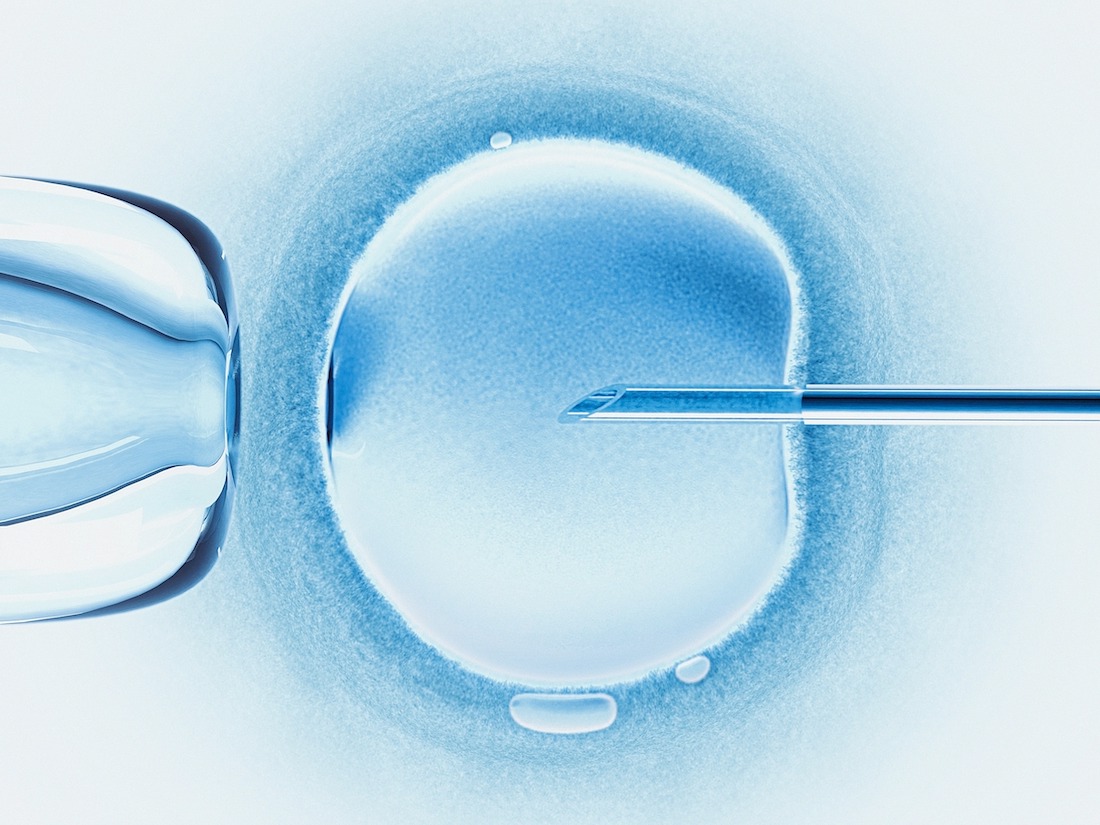
Conceiving a child isn't always straightforward. Whether it's a couple who's able to conceive naturally, a single parent seeking out artificial insemination, a couple using IVF, would-be parents getting help from a gestational carrier, or other avenues, human participation has always been front and center in the conception process. Enter: robots.
More from MamásLatinas: Celebrities who have shared their infertility struggles
OK, it's not actually that dramatic. But thanks to the wonders of modern technology, a sperm-injecting robot was successfully used for in vitro fertilization (IVF). Need proof? The first babies conceived by a robot have officially been born! Let's take a closer look at the details and what this means for IVF.
Babies who were conceived with a sperm-injecting robot have been born.

The very first babies conceived with a sperm-injecting robot have reportedly been born, per the New York Post. Reportedly, two baby girls resulted from two healthy embryos created in the process. The embryos were created using donor eggs (which can cost $15,000 but were provided to the patients at no cost) and then implanted in the uterus of the intended mother.
An engineer used a PlayStation 5 controller to guide the robot.
A robotic needle was used by engineers from a startup company called Overture Life to inject sperm cells into eggs at the New Hope Fertility Center in New York City. For the procedure, an engineer used a Sony PlayStation 5 controller to get the needle into position. Then the needle moved forward on its own to deposit a sperm cell into the egg. More than a dozen eggs were fertilized using the robot.
The father of one of the babies spoke about the groundbreaking news.

The father of one of the babies (who wished to remain anonymous) told MIT Technology Review that he and his partner unsuccessfully attempted IVF multiple times before his daughter was conceived with the help of robotic technology.
"It's wild, isn't it," he told the publication. "They said up until now it had always been done manually."
Robot conception could help lower the cost of IVF.

So how does this robotic technology affect the future of IVF? Because this process uses a remote-controlled needle and camera to inject sperm into the eggs, embryologists may no longer be needed in the future to create embryos, the New York Post pointed out. Embryologists are highly paid positions, so this could potentially lower the overall price tag of IVF, which can cost $83,000 in the US if you include failed attempts, per MIT Technology Review.
Lower IVF costs could potentially mean more babies.

If IVF costs go down because of this technology, then more couples and individuals would be able to afford the procedure. This could remove a very real, logistical barrier for those struggling with infertility.
"How do we go from half a million babies a year to 30 million?" David Sable, a former fertility doctor, told MIT Technology Review. "You can't if you run each lab like a bespoke, artisanal kitchen, and that is the challenge facing IVF. It's been 40 years of outstanding science and really mediocre systems engineering."
What do you think of this new technology?

